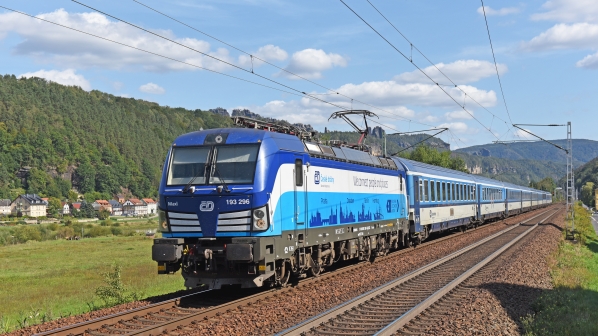Testing is being carried out using a two-car train composed of a measuring coach and a Czech Railways (ČD) first-class Eurocity coach, hauled by a ČD Siemens Vectron multi-system locomotive equipped with ETCS Level 2, baseline 2. The maximum speed of the line is currently 160km/h.
The current state of the bridges along the line and their durability at higher speeds is being assessed during the test runs, with two bridges built in 1933 and 1946 with load-bearing structures susceptible to oscillation selected for monitoring.
Preparation to upgrade the line should begin this year, with the objective to complete the work by the end of 2025. This will include upgrading the stations at Podivín and Zaječí, as well as the removal of level crossings and other infrastructure upgrades.
“The results of the tests show that it is realistic, after necessary modifications of the railway infrastructure, to raise the maximum speed of certain trains on several sections within a relative short time,” says SŽ CEO, Mr Jiři Svoboda.
Currently, 255km of lines are equipped with ETCS in the Czech Republic, with another 206km between Břeclav and Petrovice U Karviná due to be equipped this year.
The installation of ETCS Level 2 is underway on the Prague - Votice line, also due to be completed this year, the Pilsen - Cheb line, due to be completed in 2022, and the Kolín - Prague - Kralupy nad Vltavou line, due to be completed in 2023, while preparation is underway for other lines to be equipped.
Under the ETCS Czech national implementation plan, trains not equipped with ETCS will not be allowed to operate on ETCS-equipped routes from January 1 2025.
The project is part of the Czech Republic’s plan to construct a series of high-speed lines, connected with existing lines upgraded for 200km/h operation.

